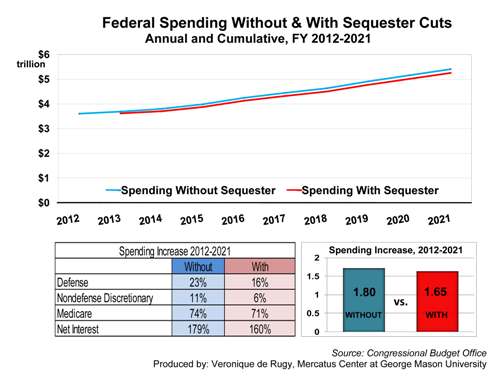[This is the script from the latest episode of my podcast, "Consider This!"]
Detroit, Michigan, formerly the auto-making capital of the US, if not the world, filed for chapter 9 bankruptcy protection on July 18th, becoming the current capital of big cities going under in the US. What brought Detroit under water is not really debatable; declining income and spending beyond its means. What is being debated are the causes of the two.
On the spending side, I think it’s no coincidence that the city has had essentially one party rule for the past 51 years. No surprise that the party in question is the Democratic Party. Detroit’s current budget deficit is believed to be more than $380 million, and its long-term debt could be as much as $20 billion. Rather than cutting spending, Detroit ignored the common sense lesson of living within your means, embrace the Paul Krugman idea that austerity kills, and died anyway, spending like there was no tomorrow. Well, there is a tomorrow, and it’s here.
When tax and spend had to be curtailed, because of a shrinking tax base, then borrow and spend kicked in. I suppose someone like Krugman would say they didn’t borrow enough. When that wasn’t enough, President Obama said that Detroit wouldn’t go bankrupt on his watch, and he tossed boatloads of money at the union-controlled, Democrat-voting auto industry, and pronounced it, merely on the reasoning that he had written a check, that Detroit was coming back. Yeah, no so much.
Now, even the Obama administration won’t touch them. They’ve stood up for their big spending principles, in DC and in Detroit, and reality has hit them upside the head with the mother of all clue-bats, as in “get a clue”. It doesn’t matter what your intentions are. Consistently spending more – far more – than you have will one day come home to roost. And everyone – both those from whom the money was taken, and to whom the money was given – will suffer. And it will affect the poor disproportionately because the rich have the means to escape.
And they did escape, which brings us to the income side of the equation. The riots of 1967 chased citizens and businesses alike out of the city, which only accelerated and existing trend, such that in the past 60 years, it lost 60% of its residents. But the riots weren’t the only reason. With corruption, over-promising and the requisite overspending, those that could read the handwriting on the wall did what they had to do. If you can’t change the government, change your location, and they did.
And if you’re inclined to lay the blame at the feet of greedy corporations that outsource jobs, Walter Russell Mead has some information that tends to suggest a group as, or more, culpable. The city’s $11 billion in unsecured debt includes $6 billion in health and other retirement benefits and $3 billion in retiree pensions for its 20,000 city pensioners. That’s “billion”, with a “B”. But now, these folks, whose union representatives negotiated this package, and now very likely going to get less than 10 percent of that. Like I said, everyone gets hurt, ultimately, with these kinds of policies. Those who got their benefits and hit the road are not unlike the folks who start a pyramid scheme. They cash in early and often, while those who get in later either get very little return, or lose out. The pyramid in Detroit has played itself out.
Walter Russell Mead, again, has a relevant warning for those in other cities who still think such policies are a good idea, because of their good intentions.
Progressive politicians, wonks, and activists can only blame big corporations and other liberal bogeymen for so long. The truth is that corrupt machine politics in a one-party system devoted to the blue social model wrecked an entire city and thousands of lives beyond repair. The sooner blues come to terms with this reality, the greater chance other cities will have of avoiding Detroit’s fate.
I would add that the sooner DC comes to terms with this, the better, for the same reason. And, working our way back in the political process, the sooner the voters of this nation come to terms with this, the better off we will all be. It may not sound, to the untrained ear, to be very caring, or fair, or socially just. But Detroit has a 47% illiteracy rate. 60% of its children are living in poverty. Its crime rate is 5 times the national average. The murder rate is 11 times higher than New York City. Is it caring, or fair, or socially just, to pursue policies that led to that?
If you continue to vote for those policies, then what visited Detroit will be visiting you soon enough. It may already be in the process of happening. Detroit just got there first. Who’s next?

